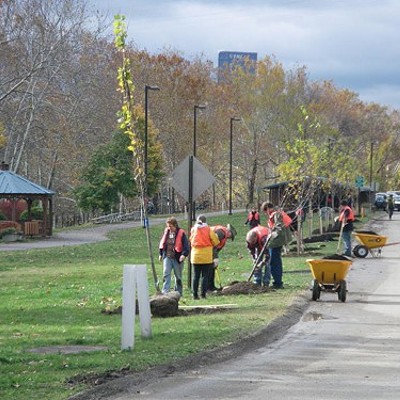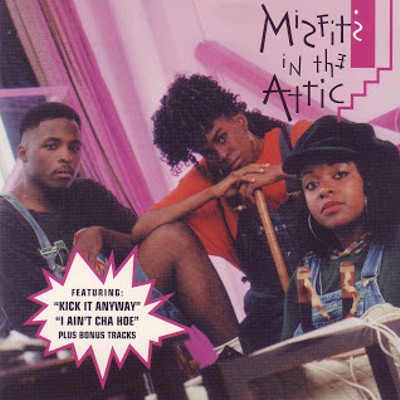Thursday, April 4, 2013
Black leaders seek to consolidate black political base in mayoral race
Although almost everything else about the mayor's race has changed over the past couple months, pundits have clung to one rock-solid certainty: Black voters could ultimate decide the winner. As the inimitable Chris Briem recently pointed out, black voters could make up nearly a third of the electorate on election day -- although as Briem also noted, "It just isn't true that they always vote one way or the other."
Now Sala Udin, and the fledgling Pittsburgh Black Political Convention, hope to change that, by "provid[ing] a unified voice of African Americans in Pittsburgh" when it comes to choosing the next mayor.
Udin, a former city councilor, stood before a crowd of dozens that included black leaders ranging from the NAACP's Tim Stevens to La'Tasha Mayes of New Voices Pittsburgh: Women of Color for Reproductive Justice. And their message to mayoral candidates, Udin thundered, was "You will respond to our needs and to our demands for a quality of life in Pittsburgh, or you will not be elected to high political office."
The Convention has compiled a "Black Agenda" of issues that Udin and other leaders felt were crucial to black residents. Candidates who want the convention's backing must provide a written response to the group's "Black Agenda," which will be distributed tomorrow. (A copy will also be posted on the Convention's website tomorrow, after it has been delivered to candidates.) Candidates will then appear at a candidates' forum to be held at 6 p.m. on April 19 at Lincoln Larimer's Mt. Ararat Baptist Church. The next day, black residents who are registered to vote will be invited to come to Ararat and cast their votes for the candidate who, as Udin put it, "articulates the clearest plans ... to include the black community as a high priority."
Udin said the Convention was inspired by Ravenstahl's decision not to seek re-election; the mayor was widely assumed to have broad support among black voters, and Udin said his departure created "a unique opportunity." But he also said that few of the candidates who entered the field since then had articulated a message that spoke to the needs of black residents.
(The convention will not concern itself with candidates for council or school board, at least not yet. Udin said that since the initiative had been launched only weeks ago, members wanted to avoid "biting off more than we can chew." But he added said "other elected officials should be put on notice," that the convention will someday turn its attention to their offices as well.)
While the group is new, its support may prove highly useful, as the support of black voters is very much up for grabs.
There are two black candidates in the race: A.J. Richardson, who was a near-total unknown until a DUI charge earlier this week, and State Rep. Jake Wheatley. Wheatley represents the Hill District and some other black neighborhoods, and has raised concerns about racial justice repeatedly. When asked about police morale during a debate at the University of Pittsburgh last night, for example, he said "I know for a fact, African-American officers in that department feel like they’re under attack for something that happened with one individual ... No one is speaking towards that." Yet Wheatley has never run a citywide race before, and his late entry into the field means he will have to work overtime for name recognition. His fundraising ability is also untested: By the end of last year, he had less than $5,000 in his state campaign committee, and he has generally not needed to raise large sums to keep his seat in the legislature.
And while Udin pledged that the Convention could support a "white candidate with a solid endorsement of the Black Agenda," neither of the two white candidates -- City Councilor Bill Peduto or former state Auditor General Jack Wagner -- has demonstrated much strength in black neighborhoods to date. The last time Wagner sought the support of city voters, the 2010 gubernatorial primary, his performance in black wards was uninspiring. He trailed then-county Executive Dan Onorato badly in most black neighborhoods, and in many cases finished third, behind Onorato and state Sen. Anthony Williams, a black Democrat from Philadelphia. Peduto's council district, meanwhile, is largely white. In his last citywide run, the 2005 mayoral primary, he trailed winner Bob O'Connor badly -- often by margins of 7 to 1 or more.
Udin himself was once considered a potential mayoral candidate. On council, he was a frequent critic of the city's Bureau of Police during the late 1990s and early 2000's -- a period when, like today, the bureau seemed to attract bad headlines on a weekly basis. So is demanding greater police accountability part of the Black Agenda?
Udin smiled. "You know it is," he said.











